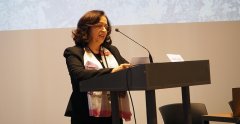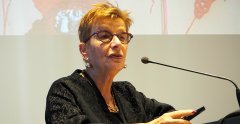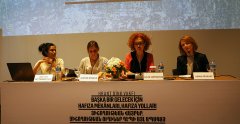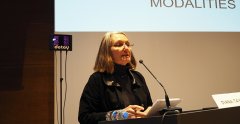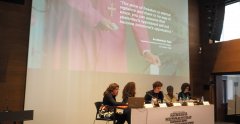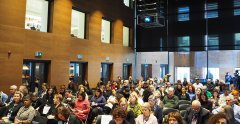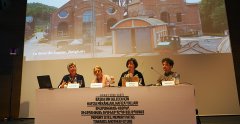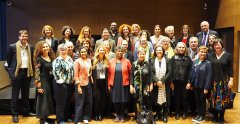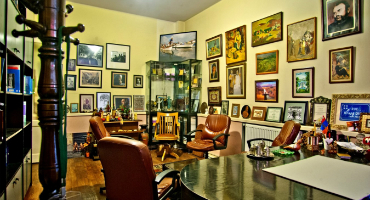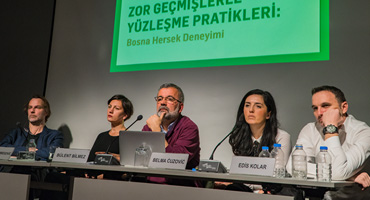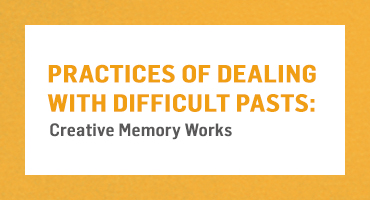Hafıza Mekânları Hafıza Yolları Konferansı
https://hrantdink.org/images/hafizamekani/konferans/P3220024-770x400.jpg
https://hrantdink.org/images/hafizamekani/konferans/P3220036-770x400.jpg
https://hrantdink.org/images/hafizamekani/konferans/P3230231-770x400.jpg
https://hrantdink.org/images/hafizamekani/konferans/P3220020-770x400.jpg
https://hrantdink.org/images/hafizamekani/konferans/P3220069-770x400.jpg
https://hrantdink.org/images/hafizamekani/konferans/P3230201-770x400.jpg
https://hrantdink.org/images/hafizamekani/konferans/P3220102-770x400.jpg
https://hrantdink.org/images/hafizamekani/konferans/P3220031-770x400.jpg
https://hrantdink.org/images/hafizamekani/konferans/P3220160-770x400.jpg
https://hrantdink.org/images/hafizamekani/konferans/P3230259-770x400_copy.jpg
The conference entitled as ‘Memory Sites, Memory Paths: Towards Another Future’ took place at Yapı Kredi Kültür Sanat Loca on 22-23 March. The conference was organized by Hrant Dink Foundation in cooperation with DVV International and Friedrich Ebert Stiftung Turkey Office. The experts and representatives from the museums and memory sites that deal with difficult pasts, from NGOs doing memorialization work and academics carrying out remarkable work on memory and practices of remembrance participated in the conference as speakers.
The conference brought memory sites, museums dealing with difficult pasts and inspiring works on memorialization from Germany, Poland, Netherlands, South Africa, Rwanda, Sri Lanka, Bosnia-Herzegovina, Cambodia, USA, Hungary, Lebanon, Ireland, Belgium and Armenia together with a broad audience. During the conference, the experiences of practitioners was shared, as well as the critical and theoretical approaches of academics. The keynote speech entitled as ‘ Memory and Counter-Memory for the Future’ was delivered by Marianne Hirsch who is the William Peterfield Trent Professor of English and Comparative Literature at Columbia University and who carries out remarkable work in the field of memory and post memory .
On the 23rd of March, the keynote speech entitled as ‘Modalities of Memory’ was held by Diana Taylor who is a professor of Performance Studies and Spanish at New York University. During the course of two days the conference consisted of eigth panel sessions entitled as: ‘Exhibiting Difficult Pasts’, ‘ Art and Memory’ ; ‘City Museums: Local Histories and Memories’ ; ‘Life and Hope in Memory Sites’ ; ‘New Dimensions and Challenges in Memorialzation’ ; ‘Education and Alternative Pedagogies’; ‘Power of Testimonies,Personal Narratives and Stories; Dealing with the Perpetrators’.
During the conference, discussing the present and the future of the memoralization works, addressing the challenges that memory sites are facing; shedding light on the best practices to engage the visitors and ensure their active participation; presentation of methods to include the lived experiences of the visitors and make their voices audible; emphasizing the pedagogic mission of the memory sites and addressing topics like post-memory, counter-memory, legacy and transmission of the memory to the next generations was mind-opening for the audience.
You may access to the videos of the conference below.
Opening remarks
Rakel Dink (Hrant Dink Foundation)
Keynote lecture
Marianne Hirsch (William Peterfield Trent Professor of Comparative Literature and Gender Studies, Columbia University)
Memory and Counter-Memory for the Future
Exhibiting Difficult Pasts
Chair: Ayfer Bartu Candan
Marlen Mouliou (University of Athens, lecturer of museology)
Systems-Centred Thinking as an Alternative Mind-Set in Museums for Managing Conflict and Working with Difference
Bonita Bennett (District Six Museum, director)
Memory is the Weapon
Mona El Hallak (architect and heritage preservation activist)
Beirut Between Remembrance and Amnesia
Emilia Potenza (Apartheid Museum, curator of exhibitions and education)
Can’t Remember, Can’t Forget
Curating the South African Truth and Reconciliation Process
Art and Memory
Chair: Özalp Birol
Agnieszka Sieradzka (Auschwitz-Birkenau Memorial and Museum, head of art collections)
Art in the Concentration and Death Camp: The Art Collection of the Auschwitz Museum
Andreas Knitz (artist)
Art as an Ambassador
Charles Duggan (Dublin City Council, heritage officer)
The Value of Memory and Creative Artistic Work in the Making of a New Dublin Social History Museum
City Museums: Local Histories and Memories
Chair: Asena Günal
Sarah Henry (New York City Museum, deputy director)
Difficult Urban Histories: Contending with the Past, Present, and Future at the Museum of the City of New York
An Lavens (BElvue Museum, director)
BELvue Museum as a Societal Project
Annemarie de Wildt (Amsterdam City Museum, curator)
Amsterdam’s Contested History
Life and Hope in Memory Sites
Chair: Ayşe Gül Altınay
Linda Norris (International Coalition of Sites of Conscience, Global Networks Program Director)
Living Sites of Conscience
Joanna Fikus (POLIN Museum of the History of Polish Jews, head of exhibitions)
In the Beginning There was a Dream
Lars Ebert (Castrum Peregrini, programme director)
Heritage Conflict Zone or Heritage Contact Zone? The (Im)Possibility of Dealing with Trauma in Heritage Sites
23 MARCH 2019
Opening lecture
Diana Taylor (Professor of Performance Studies and Spanish at New York University )
Modalities of Memory
New Dimensions and Challenges in Memorialization
Chair: Hülya Adak
Andrea Peto (Professor in the Department of Gender Studies,Central European University)
Paradigm Change in Holocaust Memorialisation
Harutyun Marutyan (Armenian Genocide Memorial and Museum, director)
The Armenian Genocide Memorial and Museum in Post-Centenary Period
Visoth Chhay (Tuol Sleng Genocide Museum, director)
The Role and Importance of Tuol Sleng Genocide Museum in Dealing with the Past
Education and Alternative Pedagogies
Chair: Ayşe Soysal
Paul Rukesha (Kigali Genocide Memorial, digital content development team leader)
The Genocide Archive of Rwanda: Memorialisation and Peace Education in Action
Jennifer Ciardelli (United States Holocaust Memorial Museum, Levine Institute for Holocaust Education, director of leadership programs)
Memorialisation, Education and Thinking Forward: Considerations from the United States Holocaust Memorial Museum
Power of Testimonies, Personal Narratives and Stories
Chair: Aylin Vartanyan
Radhika Hettiararchchi (Memory Map, Herstories, founder)
Memorialisation in Sri Lanka: Lessons Learned from the Herstories Project and the Memory Map Archive
Justine di Mayo (Act for the Disappeared, founder)
Resisting Amnesia: Creating Spaces for Memory in Lebanon
Amina Krvavac (War Childhood Museum, director)
War-Affected Childhoods: A Personal Perspective
Dealing with the Perpetrators
Chair:Ayhan Aktar
Hans Christian Jasch (House of Wannsee Conference, director)
Remembrance at a Perpetrator Site: Remembering Victims by Naming Perpetrators
Henrike Clauseen (Memorium Nuremberg Trials, director)
Nazi Perpetrators on Trial: The Challenge of Exhibiting Intangible Contents
Gabriele Schwab (Distinguished Professor of Comparative Literature University of California at Irvine)
Ghostly Transferences: Revisiting ‘Haunting Legacies’


